
QUT School of Public Health and Social Work, 2 November, 2022
While some health students do practical placements in hospitals, clinics or laboratories, over the recent spring semester break 14 health students travelled overseas to do their practical placement in Vietnam. Here’s a snapshot of their experiences.
Read about:
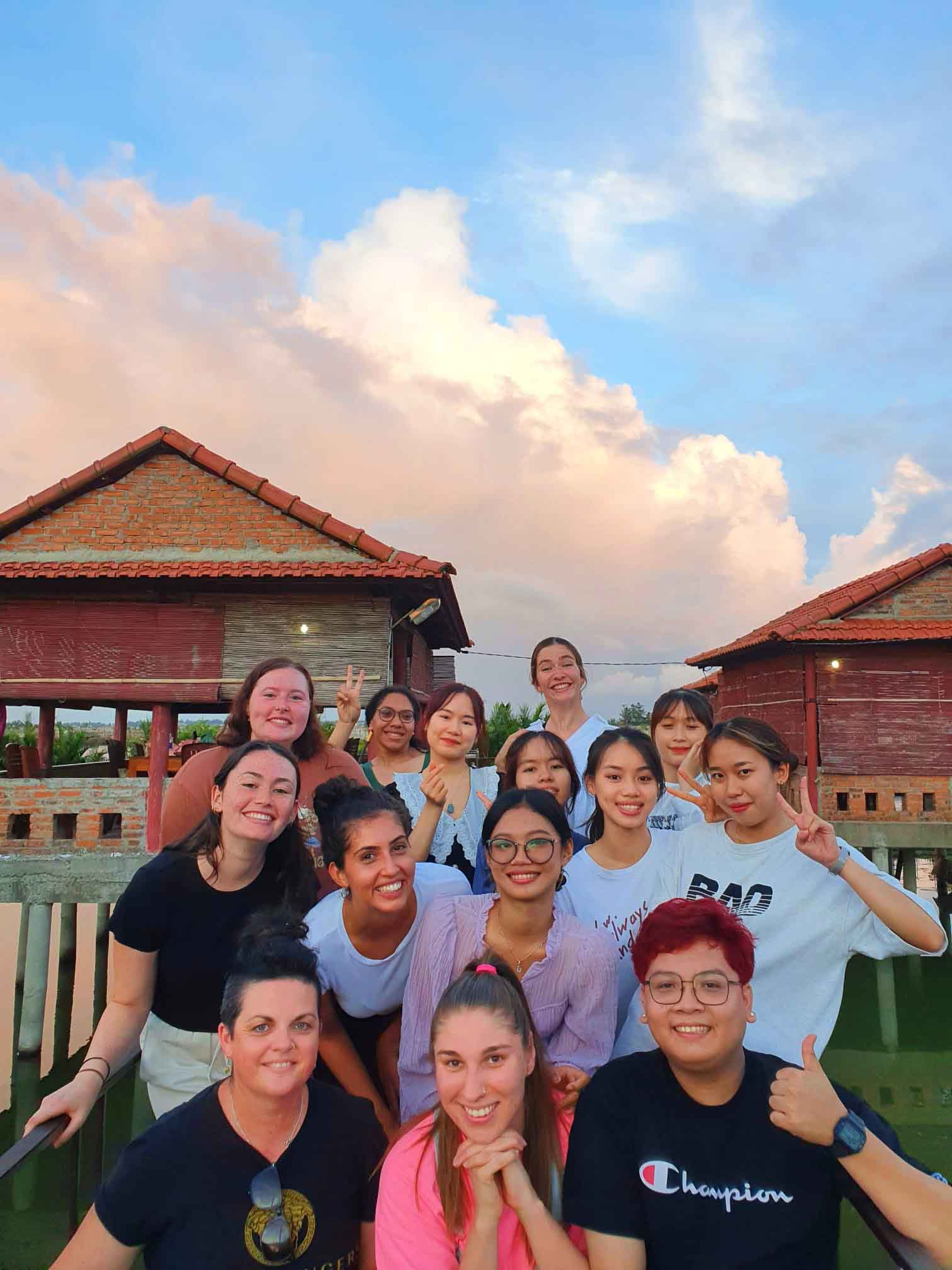
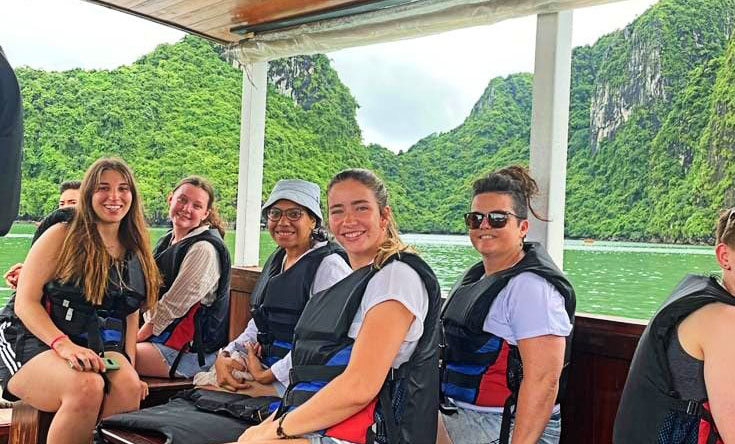
What do you actually do on an international study tour?
‘I was based in Vietnam for three weeks undertaking research on the impacts of climate change on Vietnamese women.’
Veronica Maladina, social work
‘While in Vietnam I attended the Hue University of Medicine and Pharmacy and worked collaboratively with students and staff to gain a deeper understanding of the Vietnamese health care system.’
Amelia Elliot, public health/nursing
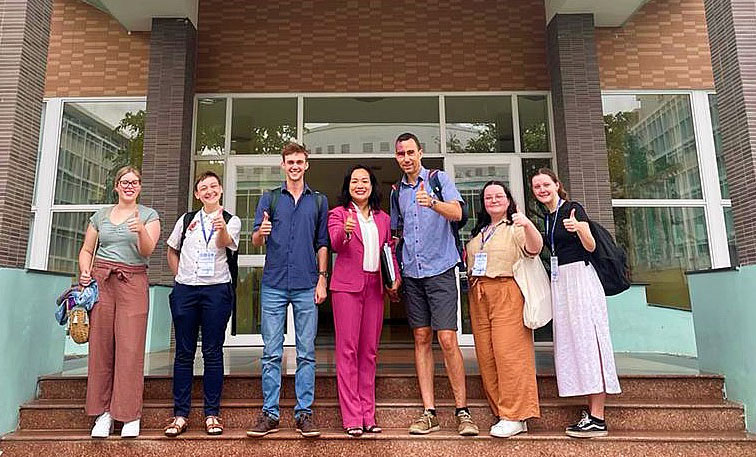
‘During the three-week program I collaborated on a research project exploring the similarities and differences between the COVID-19 vaccination programs in Vietnam and Australia. To collect data we attended lectures, conducted interviews with staff from urban and rural community health centres located in and outside of Hue, and gained a lot of insight from our conversations with our Vietnamese student buddies.’
Morgan Airs, public health
‘I’m a social work student, and I studied with the Hue University of Sciences five days a week for three weeks, exploring the research question: ‘What role can social work play in combating the social issues in relation to climate change in Vietnam?’ The university put together a fantastic program for us to learn from experts in climate change research, local government members, community members, non-government organisations and community centres. We had the opportunity to visit different provinces to see the impacts of climate change, and we also were able to travel to other areas on the weekends.'
Jane Rienecker, social work
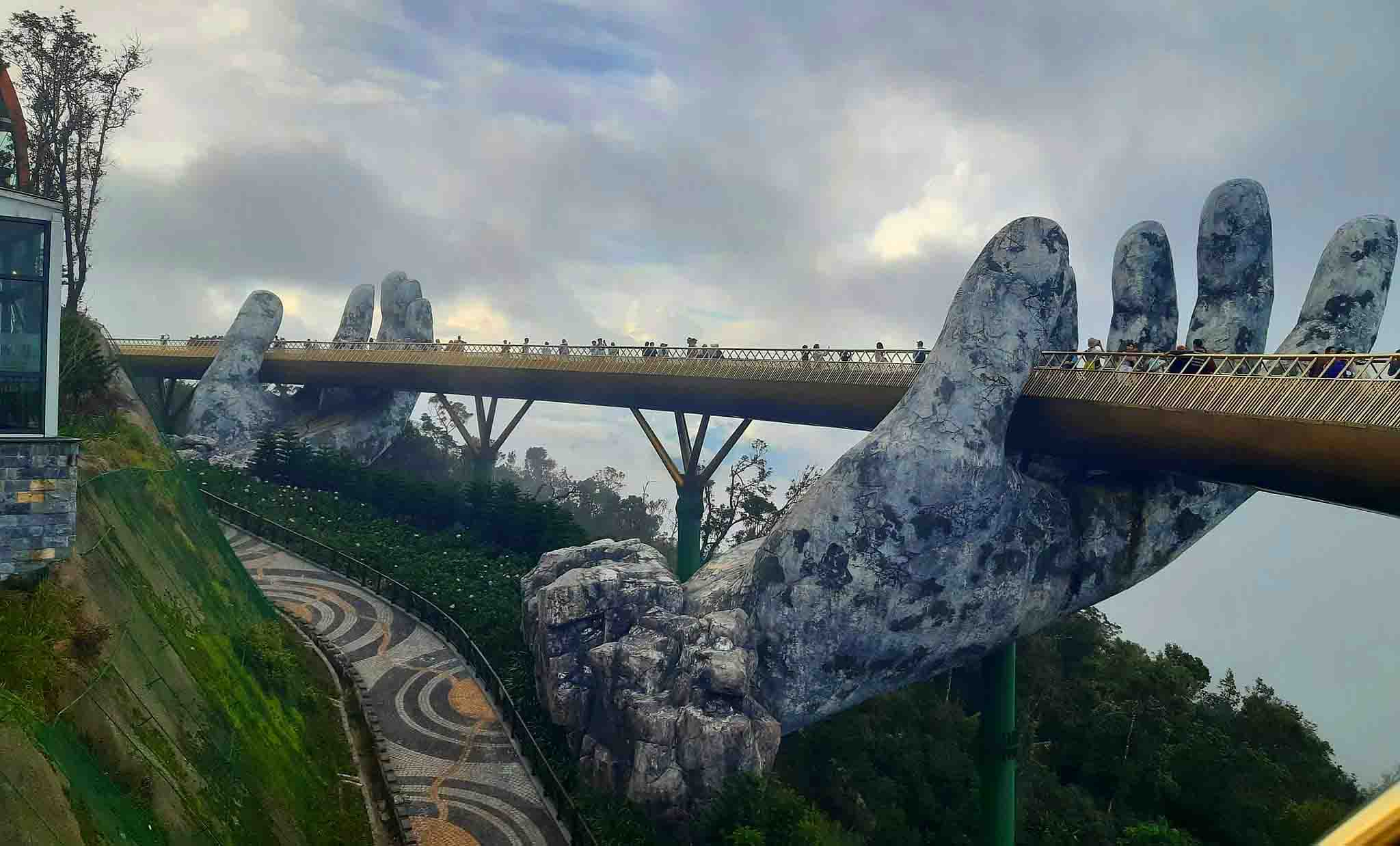
How does going on an overseas placement benefit your studies?
‘This tour has broadened my knowledge immensely. I learnt new skills that are essential for working in my field, and I observed how health care systems differ in different countries.’
Amelia Elliot, public health/nursing
‘My number one learning would be around working cross-culturally, and cultural safety and sensitivity. As Vietnam is a Communist country with a collectivist society, there were a lot of differences to the ways in which they worked, studied, and lived.’
Erin Liebenow, psychology/social work
‘Social work as a profession is vastly different between Australia and Vietnam, and there are many aspects of Vietnamese culture and social work that Australia could learn from. The study trip has really opened my eyes.’
Jane Rienecker, social work
‘Hearing people’s stories and seeing environments helps you to truly understand a community’s needs and barriers when it comes to improving health and quality of life.’
Morgan Airs, public health
What was most fun experience you had on the tour?
‘The highlight of the study tour was spending time with Hue University students. They offered us deep insights into the Vietnamese society, culture, and community, and our group formed amazing and supportive friendships.’
Veronica Maladina, social work
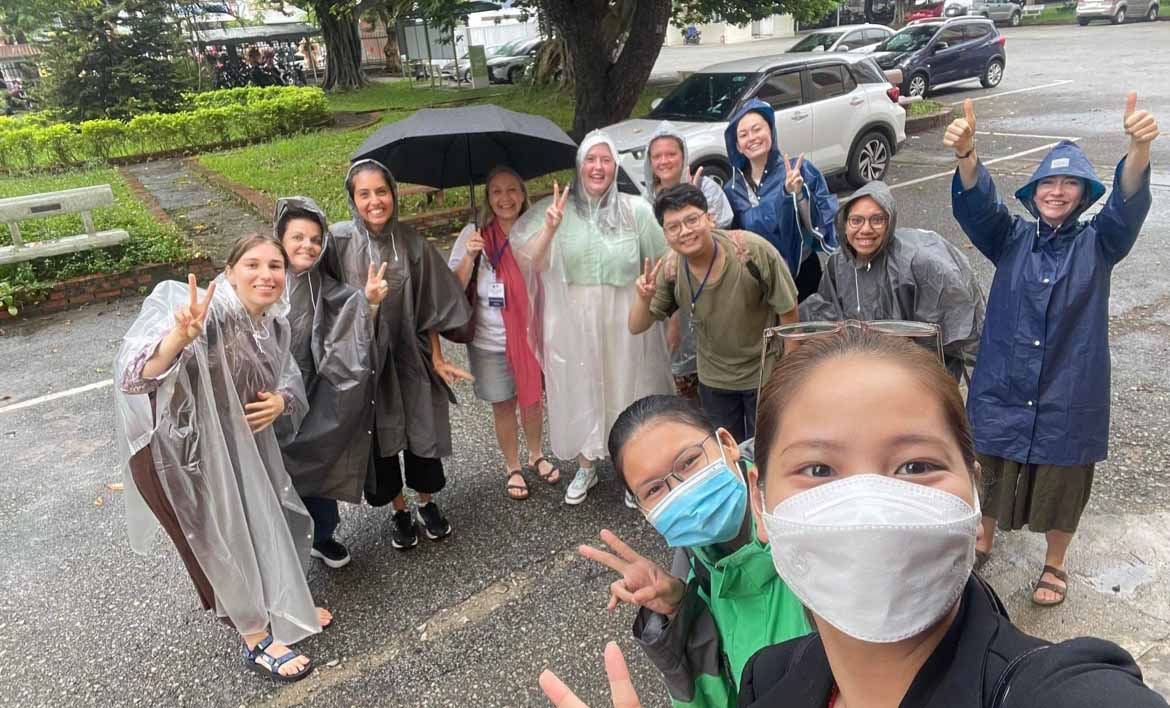
‘The best experience I had while on tour was the day spent at Enjoyable English. We spent the morning learning some basic Vietnamese as well as Vietnamese sign language. In the afternoon we travelled around Hue to some famous locations, joined by students from the Hue University. It was incredibly rewarding learning how to communicate with locals, as well as learning how sign language is used in Vietnam. We were immersed in Vietnamese culture and were encouraged to try some of the local foods that we would not have thought to try.’
Amelia Elliot, public health/nursing
‘One of the best experiences was in our first week of study, where we spent a day doing language and culture lessons with Enjoyable English. The lessons really helped us navigate Vietnam, and we even met a person who was deaf in our last week and were able to communicate with him. A very special moment.’
Jane Rienecker, social work
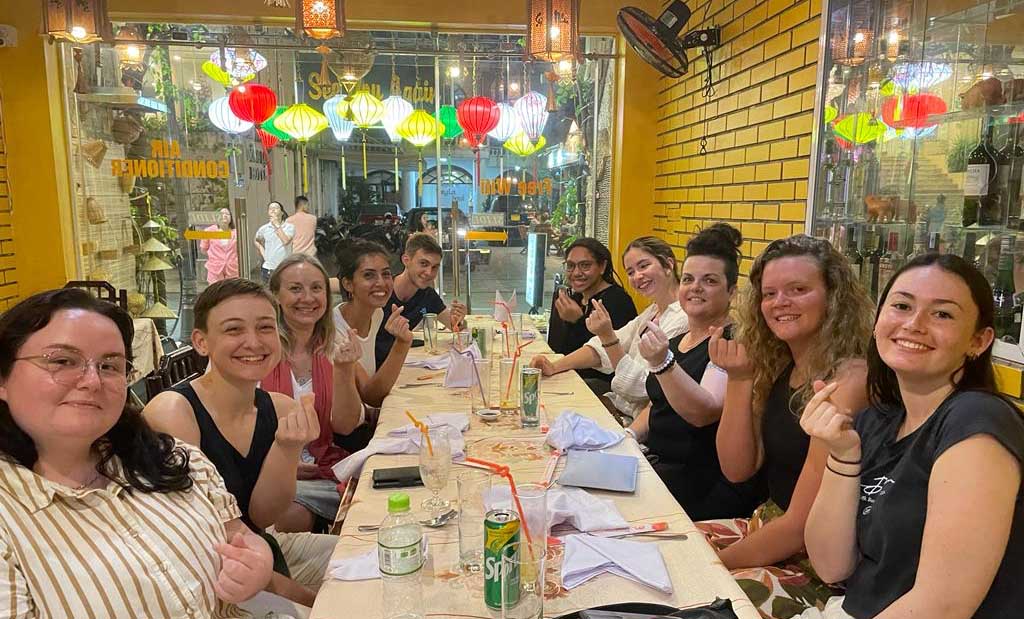
'Experiencing Vietnam’s culture and daily life through the relationships we built with our host organisation’s staff and students was incredible. I remember one night we were invited to our supervisor’s house for dinner. Her family and colleagues had prepared an enormous amount of food for us to enjoy on her rooftop patio. It began absolutely pouring down with rain all of a sudden, a typical night in Vietnam really. I remember the laughter during the chaos of rearranging the tables and seats to a sheltered area where we continued to enjoy all of the fabulous local dishes and fruits for the next few hours while sharing stories.'
Morgan Airs, public health
What’s next? What will you do after this experience?
‘I am still figuring out the exact career I would like to pursue after I graduate. I have always wanted to work internationally and make cross-cultural connections. This trip cemented this desire and helped me to envision my future career more clearly.’
Amelia Elliot, public health/nursing
‘I would love to work in an area that would give me the opportunity to research the impacts and policy surrounding vulnerable women. I want to work with an advocacy organisation that works alongside vulnerable women or with the government.’
Veronica Maladina, social work
‘Studying this degree has solidified my passion for preventative health, particularly infectious disease control. I am hoping to work within the research and health promotion space with a focus on global health and gender and sexuality.’
Morgan Airs, public health
